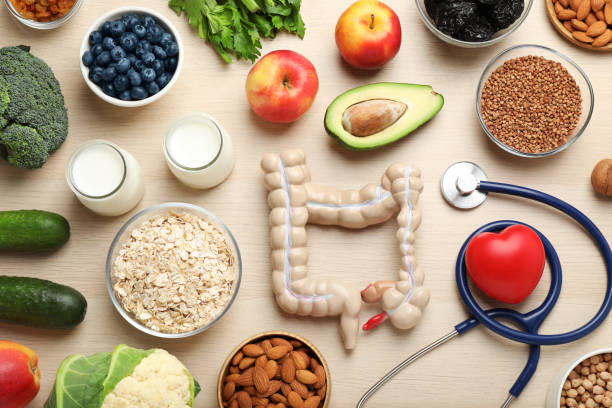
How to Improve Digestion Naturally with Food
Share
A healthy digestive system is essential for overall well-being, as it plays a critical role in breaking down food, absorbing nutrients, and eliminating waste from the body. Poor digestion can lead to a variety of uncomfortable symptoms like bloating, indigestion, and constipation. Fortunately, there are several natural ways to support digestive health through the food we eat. By incorporating specific foods into your diet, you can promote smoother digestion, reduce discomfort, and improve overall gut health. In this article, we'll explore some effective food-based strategies to enhance digestion naturally.
Incorporate Fiber-Rich Foods
Fiber is one of the most important nutrients for digestive health. It adds bulk to stool, which helps move food through the digestive tract and reduces the risk of constipation. There are two types of fiber: soluble and insoluble. Soluble fiber absorbs water and forms a gel-like substance that can slow digestion, while insoluble fiber adds bulk to stool and promotes regular bowel movements.
To improve digestion, include a variety of fiber-rich foods such as fruits (like apples, pears, and berries), vegetables (like leafy greens, carrots, and broccoli), whole grains (such as oats and quinoa), and legumes (beans and lentils) in your meals.
Eat Probiotic-Rich Foods
Probiotics are beneficial bacteria that live in the gut and help maintain a healthy digestive system. They support the balance of the gut microbiome and help break down food more efficiently. Including probiotic-rich foods in your diet can promote healthy digestion and reduce symptoms of bloating and gas.
Some great sources of probiotics include yogurt, kefir, sauerkraut, kimchi, miso, and pickled vegetables. If you're new to probiotics, try introducing them gradually into your diet to allow your digestive system to adjust.
Drink Plenty of Water
Hydration is crucial for digestion. Water helps break down food so that your body can absorb nutrients effectively, and it also softens stool, which can prevent constipation. Drinking enough water throughout the day can improve the efficiency of your digestive system and keep things moving smoothly.
Aim to drink at least eight cups of water daily, but you may need more if you're physically active or live in a hot climate. Herbal teas like peppermint or ginger tea can also be beneficial for digestion and can help soothe the stomach.
Choose Healthy Fats
Incorporating healthy fats into your diet can support digestion by aiding nutrient absorption, particularly fat-soluble vitamins like A, D, E, and K. Healthy fats also help to lubricate the digestive tract, making it easier for food to move through.
Some great sources of healthy fats include avocados, olive oil, coconut oil, nuts, and seeds. Omega-3 fatty acids found in fatty fish like salmon, mackerel, and sardines can also help reduce inflammation in the digestive tract.
Avoid Overeating and Practice Mindful Eating
Overeating can overwhelm your digestive system and lead to discomfort, bloating, and indigestion. Eating large portions puts extra strain on the digestive tract, making it more difficult for your body to break down food efficiently. By practicing mindful eating, you can help prevent overeating and support better digestion.
Try eating smaller, more frequent meals throughout the day, and listen to your body’s hunger cues. Take time to chew your food slowly and thoroughly, as this can also help your digestive system process food more effectively.
Improving digestion naturally with food is an accessible and effective approach to supporting overall health. By including fiber-rich foods, probiotics, healthy fats, and plenty of water, you can create a digestive-friendly diet that helps prevent common issues like bloating and constipation. Additionally, mindful eating and moderation are key to giving your digestive system the support it needs to function at its best. By making small adjustments to your eating habits, you can enjoy a healthier gut and improved digestion for a better quality of life.
Get more knowledge about eating healthy, please refer to The Weight Loss Salad Cookbook.
